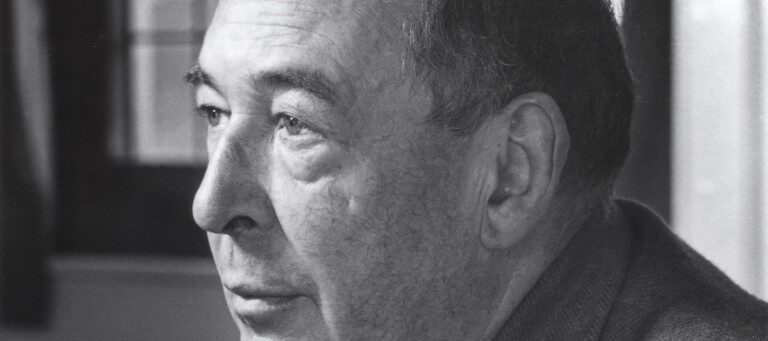Some key dates in the friendship between Owen Barfield and
C.S. Lewis:

The following is a summary of statements made by Barfield in his book, Owen Barfield on C.S. Lewis (first published 1989).
Contrasting views of the relationship between God and Humanity:
Ever since CSL died, opinions and views have been attributed to CSL that he did not hold. And they have been supported by quotes from OB, on the mistaken assumption the two friends shared the same outlook – they did not.
What they did agree on is:
For CSL the relationship was:
- one of ‘otherness’
- with an emphasis on Transcendence
- taking an anti-historicism view – seeing all human souls, from all time, as equidistant from ‘Eternity’.
For OB the relationship was:
- one of ‘sameness’
- with an emphasis on Immanence
- taking the view that human history has meaning – seeing the Evolution of Collective Consciousness as a whole.
Differences listed by theme:
Humanity – For CSL, humanity represents a collection of individual souls, each limited to one lifetime alone. For OB, humanity as a whole is a spiritual reality continually evolving.
Christianity – For CSL, Christianity entails membership of an organisation which shares his own view of what is meant by ‘Revelation’. For OB, Christianity includes all who accept the ‘Incarnation’ and ‘Resurrection’.
Moral/Spiritual Life – For CSL spiritual life is a succession of choices, each exclusive and each in the direction of hell or heaven. For OB spiritual life is a flow (or development) towards a new way of being.
Hierarchy – For CSL, hierarchy is needed for healthy social structure, including relations between Men and Women. For OB, hierarchy is a phase of evolution which is disappearing.
Belief / Knowledge – For OB, belief is a kind of consciousness that was necessary in the medieval period. But for humanity to survive, what in the Middle Ages had to be accepted on Faith, now needs to become a matter of Knowledge. For CSL, belief couldn’t be known.
Myth – For CSL, myth holds no relation to knowledge or truth. For OB, myth does hold a relation to knowledge and truth.
Imagination – For CSL, Imagination is an end in herself, and CSL maintained a pure detachment between Imagination and Truth. For OB, Imagination is a means to some other end, and OB maintained Imagination was a way of discovering Truth. The example given by OB is it’s as if Imagination is an Edwardian Lady – kept pure and chaste – and sheltered from active participation in the practical business of life. CSL wanted to place her apart as a mistress to be enjoyed. While OB wanted to set her free to participate in life. OB even goes so far as to say that her co-operation is essential for the survival of humanity.


